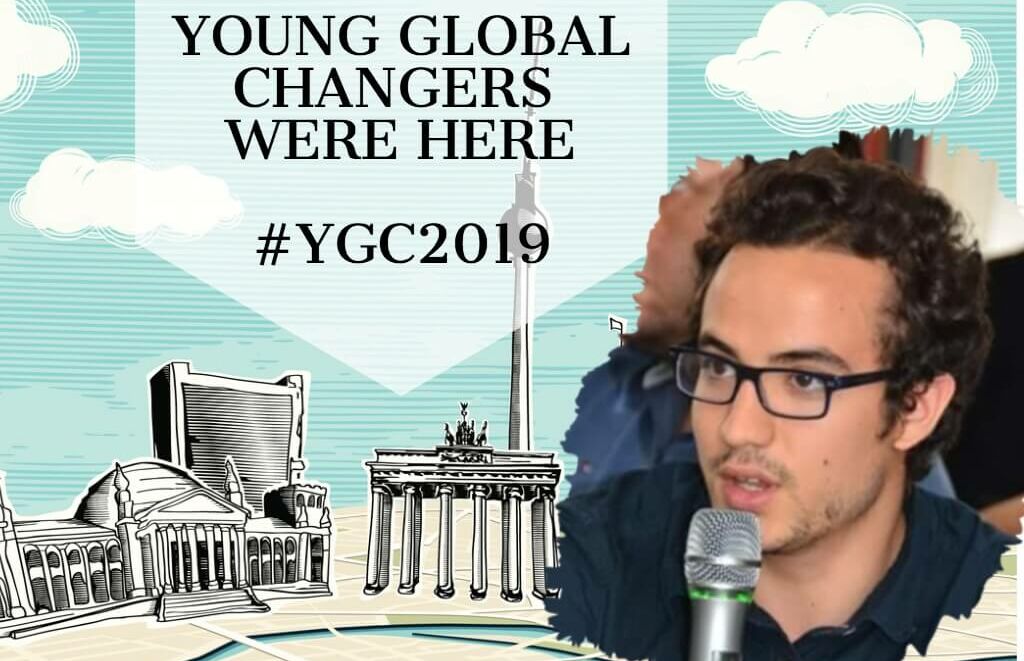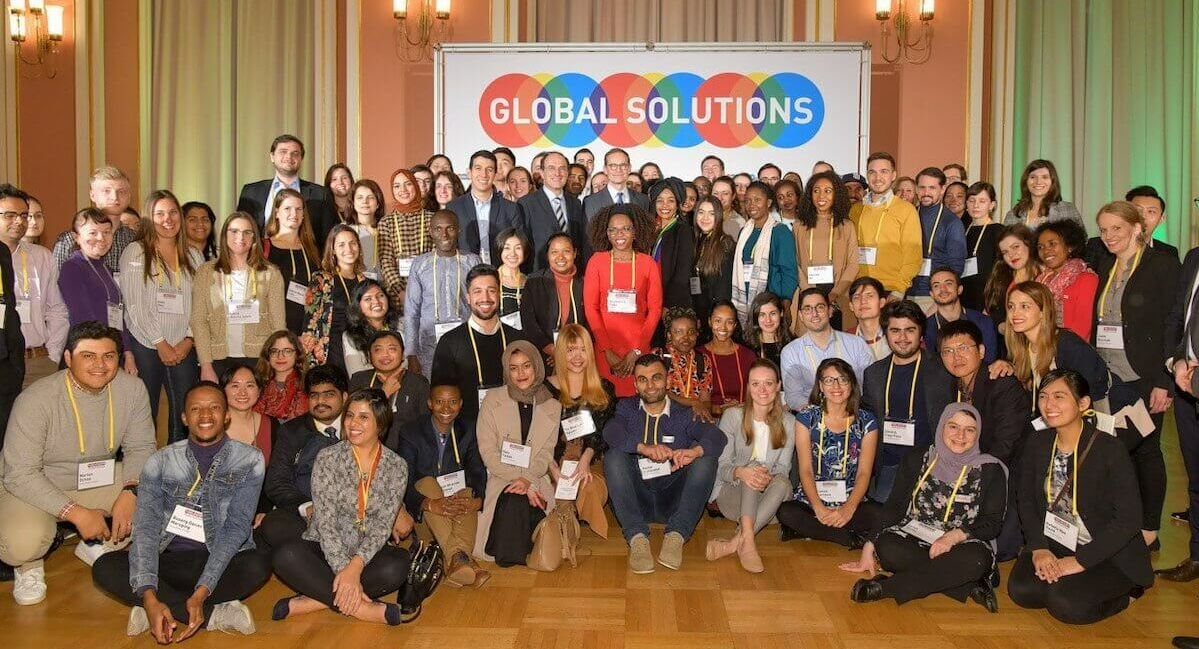The youth, wherever they come from, are the best placed to face the challenges of the new society

“We share the same fears and hopes” says Tunisian graduate finance student and activist Amine Kharrat, about the youth gathered for a four-day programme in Berlin in March. Graduate students and young professionals from over 60 countries were invited by the Young Global Changers Summer School, a programme of the Global Solutions Initiative to involve the voices of youth in global governance fora such as the G20 group of 20 leading world economies.
Amine worked with other participants on one of the G20 priority topics, their proposals directly feeding into the agenda of the T20, a think-tank task force focused on the forum of the 20 leading world economies. He discussed the global relevance of the vision of Tunisian youth, and the drivers of migration in his country.
Why is engaging youth in debates at a global level important?
My generation has been very inspired by the spirit and values of the Tunisian revolution. I think the challenges we faced are well illustrated in its central slogan: "Work, Freedom, Dignity". These are basic rights for every citizen in the world and they are severely threatened by the rise of inequalities, the risks of climate change and the recession of democracy around the globe. Inequalities and neoliberal measures hinder the welfare state and increase the mistrust of people in the state's institutions and its ability to deliver good-quality public services. If this trust is lost, anger will lead people to be more sensitive to populist and extremist ideas, such as far-right populism and Islamist fundamentalism.
The challenges related to the new society are best understood by youth. This does not mean that the role of experienced leaders is not important. It means that debate channels should be open between the two categories to optimize decisions related to challenges such as artificial intelligence and the digital economy.
How does the topic you were working on here relate to your life in Tunisia?
My group and I worked on the limits of encouraging international trade at all costs. This topic is particularly relevant for Tunisia since we are negotiating a free trade agreement (FTA) with the European Union, ALECA, that is raising more fear than enthusiasm within Tunisian civil society.
It is remarkable how Western deciders are acknowledging the limits of deregulation and neoliberalism, while continuing to negotiate an FTA with Tunisia without engaging with local civil society. It should also be noted that international trade has produced winners and losers on both sides, as much among the traditional textile German factories, for example, as local artisans in Tunisia. The international division of labour has concentrated outsourcing in countries with low wages, while promoting information-economy jobs in developed countries, often at the expense of its traditional, aging industries. The famous slogan taught in economy classes that "trade makes everyone better off" is increasingly challenged by the facts.
How are mobility and migration a relevant topic for youth in your country and region?
Migration is now a challenge for Tunisia as a country of destination for migrant workers from sub-Saharan Africa. In the past, it only represented a transit country for these migrants. Are relevant legislation is inadequate and dates back to 1968. Most of these migrants work are undocumented, which exposes them to exploitation and abuse in addition to depriving them of social rights.
The migration of undocumented Tunisian youth across the Mediterranean is still a big issue, even after the revolution, and hundreds of Tunisian youth have lost their lives looking for a better future. At the time of writing [24 March] 10 people are still missing after the fishing boat they were using to try to get to Italy sank. One of them is a 28-year-old woman cancer patient who was looking for treatment she couldn’t afford in Tunisia.
What are causes that drives Tunisian youth to migrate, or that hinder their mobility?
Contrary to the popular belief, money is not the main factor. Rather it is finding a certain success, which is legitimate. Youth with a good academic background seek opportunities unavailable at home, and those from less prosperous areas see migration to Europe as the only way to achieve an upward social mobility, given the economic stagnation, the weakening of our educational system, and corruption in Tunisia.
As for hindering mobility, the visa system is the major factor. European countries demand a great deal of often personal information, including financial and health situation, and the fees are expensive with no guarantee of acceptance. The system also favours skilled labour over the ordinary workforce, although the European economy needs both.

An estimated 77 per cent of the population in Africa is under 35. If youth had their say in Tunisia, Northern Africa and at global summits, what would they call for regarding migration drivers?
For years now, international relations as concerns African migration can be summarized in a simple equation: migration control in exchange for macro-economic aid. This has not stopped migration towards Europe, and the economic benefits of the aid are not certain. Furthermore, migrants’ contribution to the economies at home and in countries of destination are significant. their remittances back home reached $466 billion in 2017.
This paradigm should become investment-based and not aid-based, i.e. Europe should invest in high-value projects in those countries that need it, instead of only outsourcing low-added value activities there, such as call centres, and only bringing over skilled youth to Europe. The relations between the two continents should become peer-to-peer and the current economic inequality should not be used to impose security measures or other conditions.
###
The Young Global Changers is supported by Friedrich-Ebert-Stiftung. For more information on the cooperation contact the Global Policy and Development department at FES Berlin. For information on the Global Solutions Initiative contact the Initiative’s press team.
One week ago, 90 inspiring young activists and leaders finished the @glob_solutions summer school programme at FES. Here is a glimpse of their courage and bold ideas #YGC19pic.twitter.com/LTY6HrvJ4L
— FES online (@FESonline) 27 March 2019
About FES Connect
Connecting people, in the spirit of social democracy, we source and share content in English from the German and international network of the Friedrich-Ebert-Stiftung.





